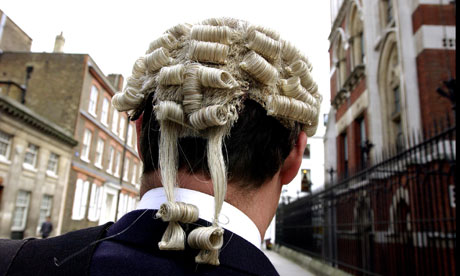
British newspapers have been sinking deeper into an unethical pit in which decency and the facts are all too often ignored. Although the tabloids are most guilty, the "qualities" are not exempt. Opinions are often ill-informed and based on inaccuracies because few journalists have the time to do real research, and fact-checking is considered an overly earnest, expensive American practice. Moreover, being nasty appears to be the easiest way to get ahead in the UK newspaper world. Fair-mindedness and objectivity are perceived as boring. In these circumstances, the British press is in a crisis about its rights and freedoms versus those of the people they write about.
Last Tuesday, I won a court case, Thornton v The Telegraph, which gave me a detailed and personal perspective on these issues. Back in 2008, Lynn Barber, an acclaimed journalist – indeed the winner of five British Press Awards – wrote a review of my book Seven Days in the Art World, which a judge has since found to contain a number of lies. Barber had made a major point of claiming that I had not interviewed her when, in fact, I had. She also claimed that I gave copy approval to my interviewees, which was untrue.
Combined with a few other factual errors, the false allegations contributed to the irresistible inference that I was a charlatan who could not be trusted to tell the truth. I wrote to the Telegraph requesting that it correct the errors and was shocked when they refused. According to Mr Justice Tugendhat, Barber made "a deliberate decision to mislead" the Telegraph's lawyers. As a result, the falsehoods lingered online, causing me all sorts of problems, and I was forced to seek legal representation to clear my name.
I eventually found lawyers willing to work on a conditional fee agreement (CFA) under which they would receive no pay unless they won. I also signed an after the event (ATE) insurance contract so I would be covered if I lost the case and had to pay the Telegraph's legal costs. After four months, the Telegraph took the review off the web, then after 10 months, they offered a partial apology, but still refused to settle except on the most bullying of terms. After two and a half years and repeated costly court applications by the Telegraph, we ended up at a trial.
"No win, no fee" agreements combined with insurance policies are the only means by which people who aren't rich and famous can defend themselves from abuses of power. My solicitors (Taylor Hampton) and my insurers (Temple Legal) are also working on more grievous actions (including the Milly Dowler case). Unfortunately, draft legislation is threatening to undermine the viability of CFAs.
Buried in the legal aid, sentencing and punishment of offenders bill, which has just been approved by a parliamentary committee and is going on to be read by the House of Lords, is a passage saying that the ATE insurance premium can no longer be recovered from the losing party. In other words, the claimant (ie me or the Dowler family) will have to pay it. The insurance premium on my case well exceeded my damages of £65,000 so, despite winning, I would be remortgaging my house this week if the legislation were already in place. Should it become law, it would prevent ordinary people from holding powerful institutions to account.
In a civilised democracy, anyone should be entitled to protect his or her reputation. However, in reporting on the judgment, many British journalists have foregrounded a statement from the Telegraph's PR woman, which said that the ruling will have "adverse implications for freedom of expression". When one journalist misrepresents the facts in order to attack another, the issue is not freedom of speech. It is malicious falsehood. I have no doubt that the Telegraph's assertion is a smoke screen for its failure to do the right thing.
In his ruling, Mr Justice Tugendhat makes clear that Thornton v The Telegraph is not about a bad review or a critic's liberty to loathe a book. It is not about opinions, but facts. The judgment draws a bottom line for the British journalistic profession, which says, quite simply, make sure you get your facts right – even in the context of a book review. Furthermore, if you are going to accuse someone of being a liar, you had better be sure you're right. And if by any chance you make a factual mistake, you need to correct the record as quickly as possible. These are the essential responsibilities that should underpin the freedom of the press. As my senior barrister Ronald Thwaites QC says, "telling lies is not a human right".

